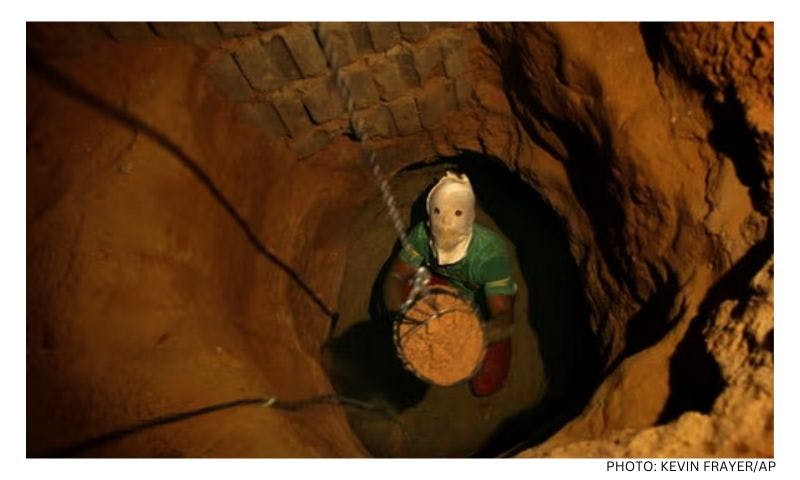Published: 27 July 2021
Last updated: 4 March 2024
ALON LIEL: A strong Israel feels no need to pursue peace; the Diaspora must transmit its moral disillusion to Israelis and articulate the big picture
BENJAMIN NETANYAHU’S LEADERSHIP of 12 years in a row was successful for Israel diplomatically. Israel’s global standing looks better today than when he took over in 2009 - and one must admit it was against most odds.
During this period, the governments led by Netanyahu have gradually dropped the (globally supported) two-state idea; prolonged the West Bank occupation; expanded the Jewish settlements, and above all, totally eliminated the peace process with the Palestinians that lasted about two decades.
Although this diplomatic package was seen by most experts as a negative for the country’s international status, the opposite actually occurred: Israel acquired scores of new friendly countries, especially in the Middle East, Africa and Eastern Europe.
A series of dramatic American gestures under President Trump (especially on Jerusalem and the Golan heights) widened the power gap meaningfully between Israel and the Palestinians in Israel’s favour. In addition, Israel inflicted several embarrassing blows on Iran and its regional allies.
This global picture was very well received in Israel and it strengthened Netanyahu’s image as a “magician” at home, while making him one of the most famous politicians globally.
Power was the name of the game
Netanyahu always believed that the exercise of power would gain Israel more friendships and, as a result, deliver additional power. Moral considerations were shoved aside as being unsuitable to the Middle Eastern arena and inviting threats and dangers.
Even those of us (me included) who disliked his “power diplomacy” have to admit that it has worked, at least so far. Conservative right-wing governments treated Netanyahu with growing respect, while the liberal-democratic governments of the world, even if they disliked Israel’s aggressive approach, did not cool their relations with Jerusalem in any meaningful way.
Even those of us (me included) who disliked Netanyahu's 'power diplomacy' have to admit that it has worked, at least so far.
The new government
We have a new government in Israel now, with a different American administration in the background. Netanyahu’s leadership was replaced by a narrow right-centre-left coalition, led by eight different parties with contradicting foreign and regional goals.
This new coalition has decided to avoid and bypass controversial topics, especially the Israeli-Palestinian conflict. Paralysis on this sensitive issue is almost guaranteed. The reason (or for some the excuse) is that any handling of this divisive topic might bring about the collapse of the coalition and (God-forbid) enable Netanyahu’s comeback.
As a result, this new government cannot initiate any diplomatic change toward solving the conflict with the Palestinians.
If any change in the Israeli-Palestinian policy is to occur, it will have to be imported from the outside. The United States is still busy with its post-Trump scars, and other relevant world players like China, Russia and even the Saudis and Egyptians, look quite indifferent to the Palestinian’s suffering.

This leaves the responsibility on Europe; after a decade of mutual dislike, western European governments are ready to give the new Israeli coalition “a chance for a fresh start”.
During the recent visit of Foreign Minister Yair Lapid to EU headquarters in Brussels, his host, the European Union Foreign Minister, Joseph Borrell, explained exactly what needs to be done: “We expect Israel to offer a political perspective to end the conflict. Stronger relationship with Israel needs to revive the path towards peace and justice.” You cannot get a clearer request. Unfortunately, the realistic Israeli reply is that the new government cannot deliver, at least at this stage.
Who else should and might play a role? How can this deadline be broken? And also, why should Israel break the peace deadlock if its international outlook looks so rosy? As most of the Israeli population believes, we are stronger, our immediate neighbors, including the Palestinians, are much weaker.
This raises two questions: Why change? And who, if at all, can bring such change about?
Israel does not face massive diplomatic pressures at the moment. Such pressures might appear if human rights-oriented leaders (like Bernie Sanders) would enter the global scene, though there is no-one in thepipeline. Even more, many existing governments are led by bureaucrats guided by their citizen’s immediate needs and interests rather than by wider principles.
The reality is that countries around the globe can benefit much more from their relations with Israel than from their relations with the Palestinians and their sprinkling of allies. It is also an accepted political reality that external pressure might bring about a change of direction in polarized societies, but rarely in united ones. And on foreign and security issues, Israelis are almost united.
The Jewish world
In the global power game, the Jewish diaspora is not an important player. It has no sovereignty, no government, no air force or navy, and no seat at the UN.
However, the situation is different when it comes to the Jewish world and the Jewish state. The diaspora still contains the majority of world Jewry; more Jews still live outside Israel than inside. For many Israelis, especially the older generations, the wellbeing of the diaspora is seen as important, being “part of the family”.
If Israel creates a binational state with four million second class citizens, it will also create two separate Jewish peoples - a liberal-pluralistic people outside Israel and a conservative-nationalistic one inside.
Relations between Israel and the Jewish diaspora, especially in the US, deteriorated under Netanyahu’s leadership. The automatic backing Israel enjoyed on foreign affairs and security issues has almost gone. For the younger diaspora generation who grew up in democratic-pluralistic environments, the ongoing occupation is difficult to absorb.
They feel that Israel can afford a more generous approach to the Palestinians without risking its security. They are also worried about a possible erosion in Israel’s democratic nature. Liberal diaspora Jews sense growing hatred towards Israel in their own environments, some of it directed towards themselves.
They feel that the Israel their parents loved has become too arrogant and aggressive. When they compare what they see in front of their eyes to their family stories, they discover a different country. They believe the Jewish state was not established to master the lives of millions of Palestinians.
This perspective must be courageously transmitted to Israel. This modern diaspora voice carries moral weight. The Israeli public will gradually understand that by creating one binational Jewish-Palestinian state with four million second class citizens, it is also creating two separate Jewish peoples.
This prospect would definitely provoke some deep thinking. The creation of two separate Jewish peoples - a liberal-pluralistic-democratic Jewish world outside Israel and a conservative-nationalistic Jewish world inside, is a nightmare for many Israelis.
READ MORE
Israel’s AU observer status paves way for normalisation with African states (Al-Monitor)
Between the Holocaust and the Nakba, two histories – and maybe a shared future (Haaretz)
Photo: Palestinians protest Israeli policies and settler attacks in the south Hebron Hills as soldiers look on, January 2 (WAFA)



